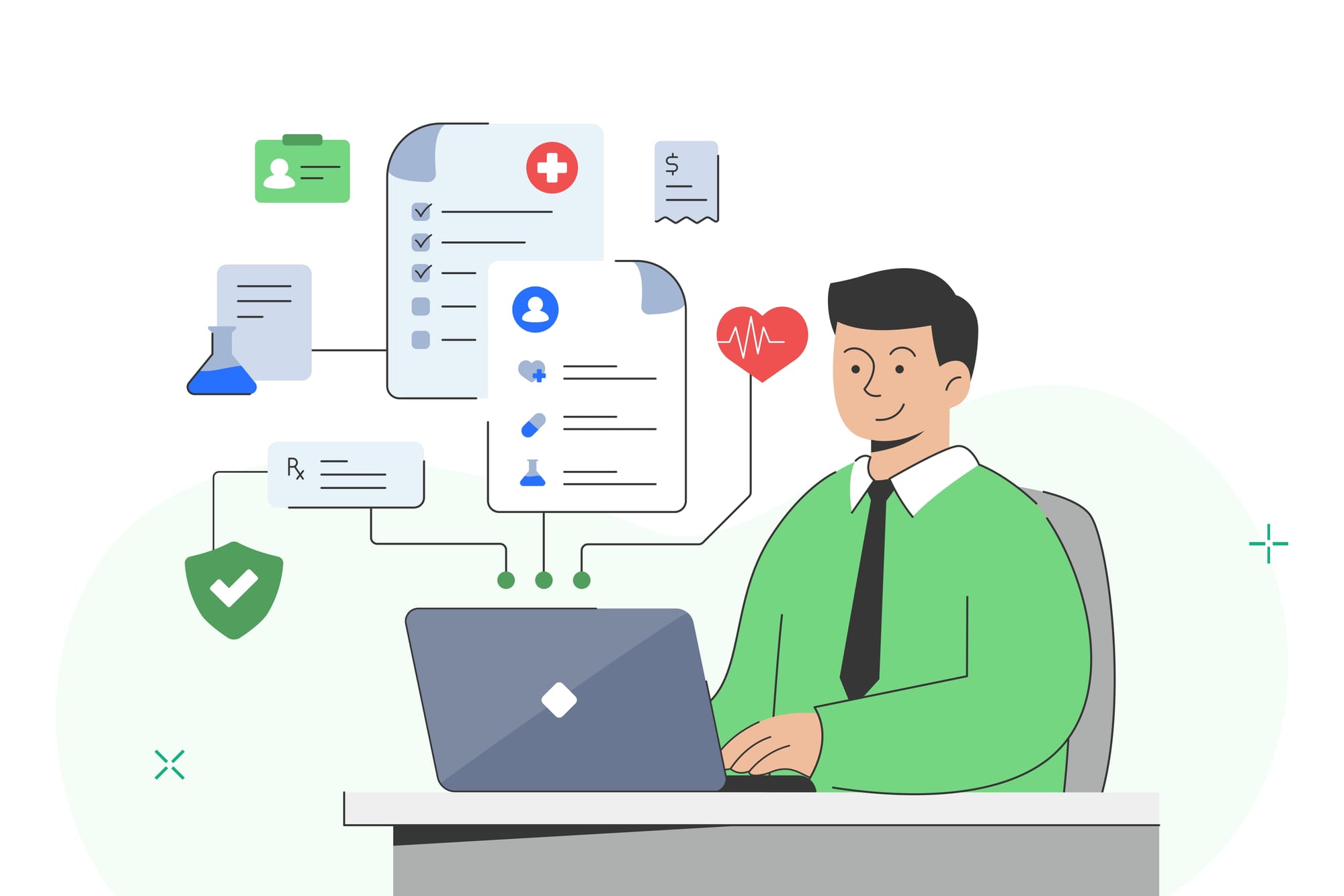Document Automation for Healthcare: 4 Benefits

Research indicates that physicians allocate over 15 hours each week to managing paperwork, diverting valuable time away from patient care.
Given the indispensable role of documentation in healthcare, the adoption of automated processes is crucial.
Automation not only alleviates the burden of paperwork but also brings about a multitude of additional advantages.
4 Core Benefits of Document Automation in Healthcare
Document automation in healthcare is revolutionising the way medical facilities manage patient information and administrative tasks.
Here are the four core benefits this technology offers to healthcare providers:
Efficient Transfer of Patient Data
In healthcare, the smooth and secure transfer of patient data is crucial for operational efficiency and patient care.
Document automation technologies significantly mitigate the risks associated with the manual handling of sensitive medical records, reducing the likelihood of errors that can occur with manual data entry.
By automating the generation and distribution of critical documents such as treatment plans, patient reports, and post-visit assessments, healthcare organizations can ensure a faster and more secure exchange of information between departments.
This not only accelerates the decision-making process but also enhances collaboration among teams, making healthcare delivery more effective.
The adoption of document automation tools in managing medical records transforms the way healthcare organizations operate, minimizing delays and improving the overall success of patient data management.
Reduction in Errors
One of the most significant advantages of document automation is its ability to reduce errors.
Automating critical healthcare documents, such as notes to insert in the electronic health record, appointment requests, and more, plays a pivotal role in reducing the margin for human error.
Document management software enables healthcare professionals to streamline the creation, storage, and retrieval of medical documents, ensuring accuracy and consistency.
This automation not only safeguards patient information but also supports healthcare providers in maintaining high standards of patient care by reducing inaccuracies in medical records.
Cost and Time Savings
Implementing document automation technologies in healthcare settings reduces the reliance on manual paperwork and data entry, helps reduce costs, and saves valuable time.
So resources previously allocated to administrative tasks can now be redirected towards enhancing patient care and investing in further technological advancements.
Enhanced Patient Care and Satisfaction
Ultimately, the adoption of document automation leads to improved patient care.
With healthcare providers spending less time on paperwork, they can focus more on patient interaction and care delivery.
Accurate and readily available patient records contribute to more informed treatment decisions, faster service delivery, and overall higher levels of patient satisfaction.
The Role of AI Scribes in Healthcare Documentation
AI scribes represent a significant innovation in healthcare technology.
These tools are specifically designed to reduce the burden of manual documentation on medical professionals.
These advanced systems can handle paperwork, transcribe medical conversations as they happen, and highlight essential details.
By automating tasks traditionally associated with manual data entry, AI scribes enable healthcare providers to dedicate more time and attention to patient care.
The introduction of AI scribe technology into the healthcare sector marks a pivotal shift towards more efficient document automation processes, ensuring that clinicians can focus on what matters most: delivering high-quality patient care.
Quadrant Health’s industry-leading AI medical scribe transcribes encounters in real time making documentation more accurate and efficient.
Frequently Asked Questions
How does document automation improve patient care?
Document automation significantly boosts patient care by granting healthcare providers immediate access to accurate patient records.
This rapid availability supports better clinical decisions, thereby enhancing patient care and satisfaction.
Through medical document processing and data extraction, automated systems ensure that healthcare professionals have the most current and comprehensive information at their fingertips, enabling more informed care strategies and improving patient outcomes.
What is document automation in healthcare?
Document automation refers to the strategic use of technology to manage, store, and process patient documents and records automatically.
By reducing manual intervention, this technology enhances operational efficiency, ensuring that patient information is accurately maintained and readily available for medical staff, thus facilitating a smoother healthcare delivery process.

